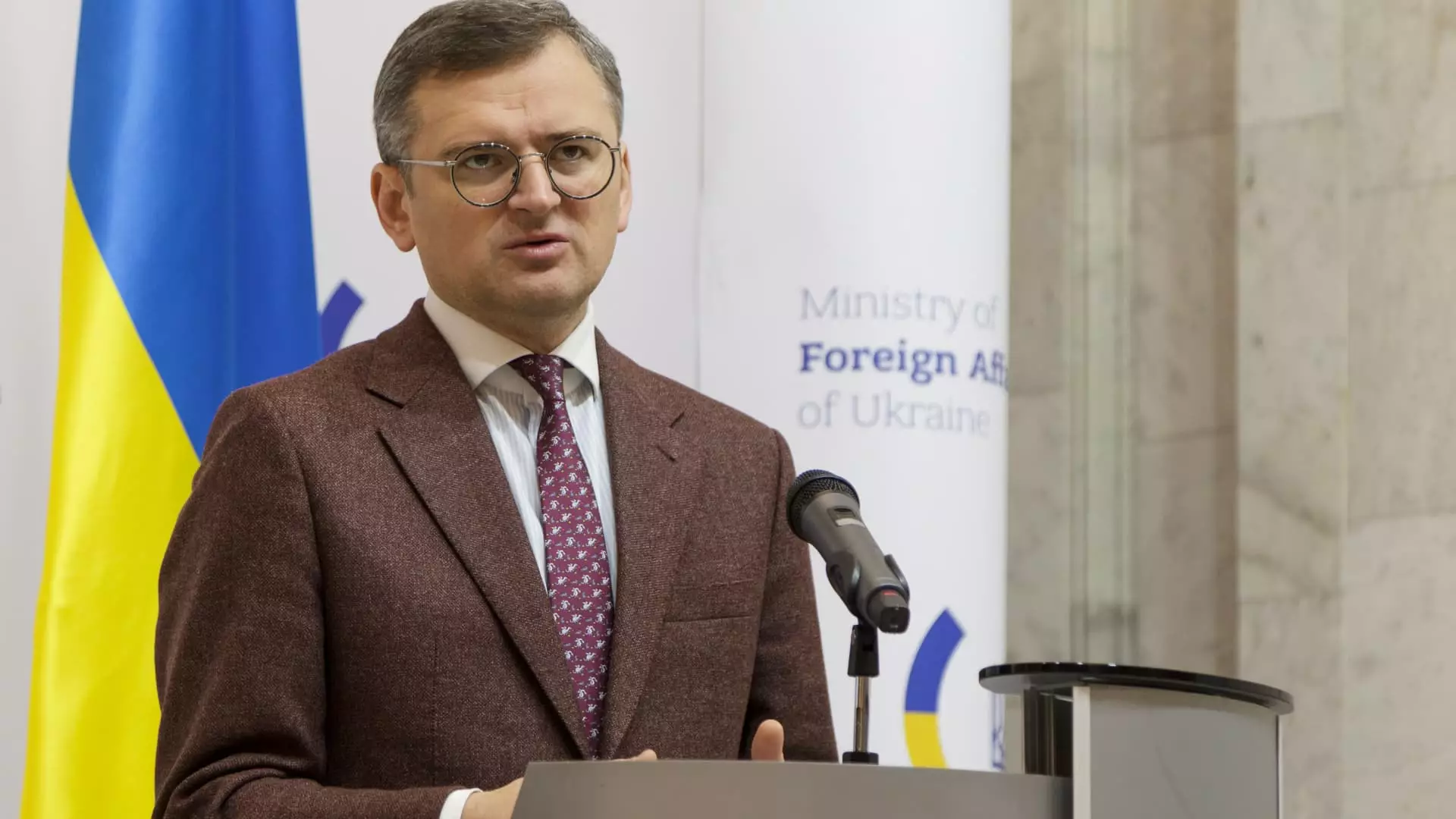The ongoing conflict between Ukraine and Russia has far-reaching implications, not just for the nations embroiled in the struggle, but for the entire European continent. The former Ukrainian Foreign Minister, Dmytro Kuleba, recently voiced a stark warning: the failure of Ukraine could unleash turmoil on European streets. His insights reflect a grave assessment of what the consequences of a Ukrainian defeat might entail, not only in military terms but also for the stability of Europe itself.
Kuleba pointedly remarked that Russian President Vladimir Putin currently lacks the capacity to engage in multiple military endeavors simultaneously, citing the decline of Syrian regime ally Bashar al-Assad as evidence of Russia’s limitations. However, he emphasized that the Kremlin’s resources can still support a singular, focused war. If Ukraine were to succumb to Russian aggression, Europe would likely become the next target on Putin’s agenda. This scenario stresses the urgent need for Europe to reconsider its strategies and alliances as they relate to Russian expansionism.
The prospect of Ukraine’s NATO membership has been a contentious issue, fraught with political sensitivities among existing NATO members. Kuleba stated that halting NATO membership discussions could temporarily facilitate a ceasefire; however, he cautioned such measures would not prevent future conflicts. He argued that tangible security guarantees are insufficient without formalized membership. Kuleba asserted that only serious diplomatic engagement can lead to effective military collaboration for Ukraine, indicating that NATO membership remains a pivotal goal for national and European security.
The requirement for unanimous approval from current NATO members complicates Ukraine’s aspirations. The emergence of new leaders, like the anticipated return of former President Donald Trump, adds another layer of unpredictability to the geopolitical landscape. Kuleba expressed cautious optimism regarding Trump’s approach based on his communications with President Volodymyr Zelenskyy, indicating that renewed dialogue could potentially benefit Ukraine.
Amid ongoing hostilities, Kuleba articulated that the vital key to resolving the conflict lies in Moscow, rather than Kyiv. It is imperative, he insists, for any dialogue with the Russian government to center around encouraging Putin to engage in discussions with sincerity. The former minister underscored President Zelenskyy’s commitment to safeguarding Ukraine’s territorial integrity, affirming that any diplomatic resolution should not entail conceding land. This firm stance is crucial, as any deviation could not only violate Ukraine’s constitution but also endanger the sovereignty that the country has fought so fervently to maintain.
Understanding the motivations behind foreign policy decisions can aid in formulating better strategies for peace. Kuleba’s insights align with the broader understanding that appeasing aggressive nations rarely leads to lasting solutions. Instead, he advocates for an approach that recognizes the depth of humiliation felt by Ukraine and the necessity of ensuring its dignity and sovereignty in international discussions.
With tensions escalating further, recent actions reveal the gravity of the situation. Russia’s large-scale attacks targeting Ukraine’s energy infrastructure have not only heightened urgency among Ukrainian leadership but have also prompted discussions about how to respond effectively. Kuleba has asserted that Ukraine cannot afford to remain passive while facing relentless aggression. Echoing a sentiment of resilience, he emphasized that counter-escalation is not only a strategic necessity but also a moral imperative.
The evolving dynamics of the conflict demand that European leaders take heed of the warning signs posed by Ukraine’s struggle. If a united Europe does not act decisively to support a critical ally, the ripple effects may soon reach their own backyards. Understanding this urgency is crucial not just for Ukraine, but for fostering long-term stability across the region.
Dmytro Kuleba’s warnings serve as a clarion call to the European Union and its member states. The fight for Ukraine is emblematic of a broader struggle against dictatorial aggression that threatens not just one nation but the collective security of Europe as a whole. If Ukraine falls, the consequences could echo throughout Europe, leading to increased instability and insecurity. Thus, the time for decisive action and support is now, before the cost of inaction shapes an unconscionable future.


Leave a Reply